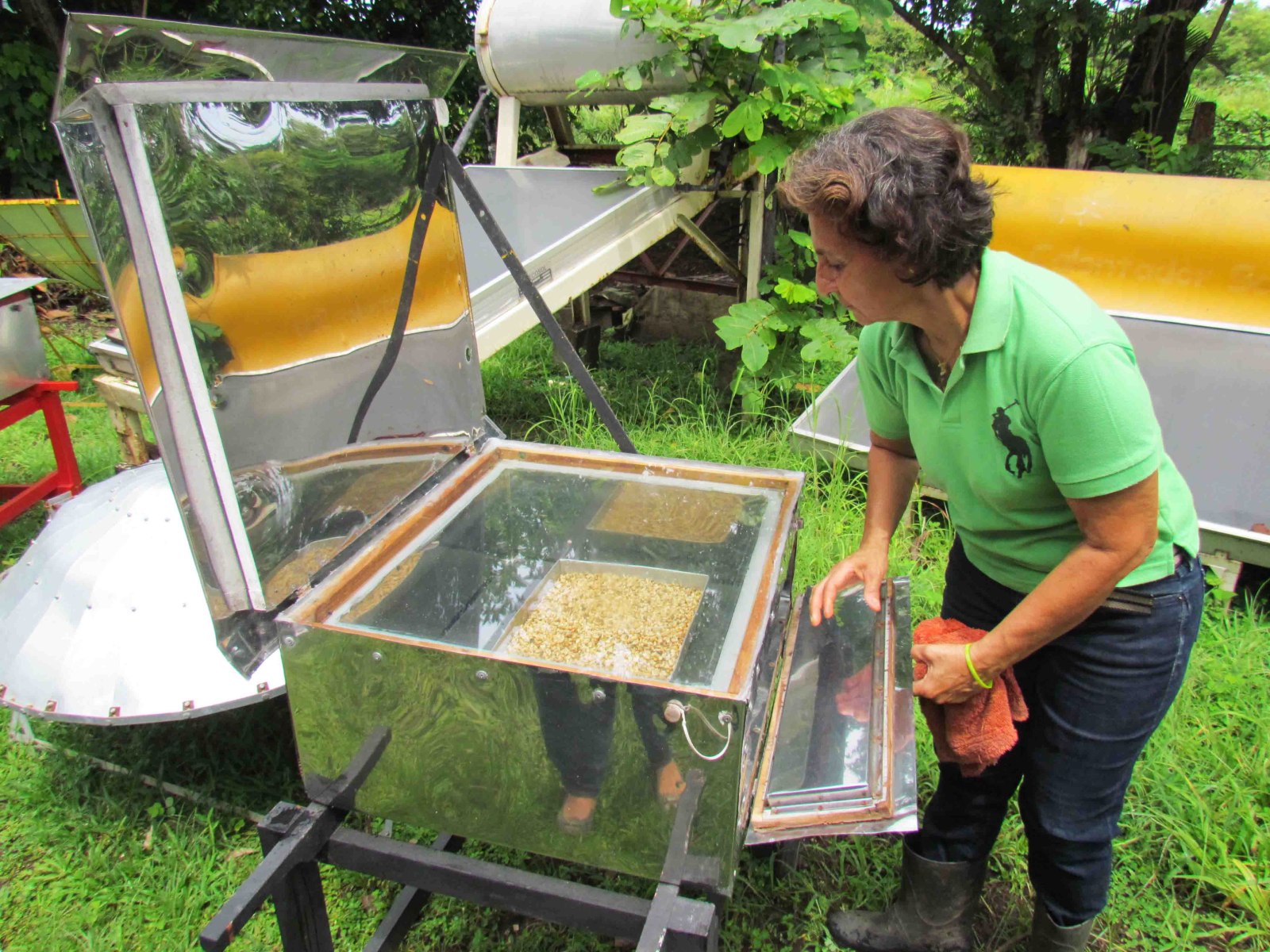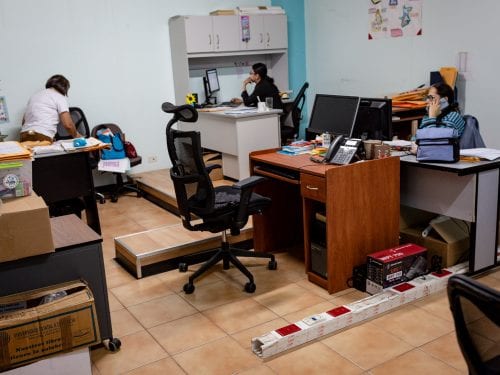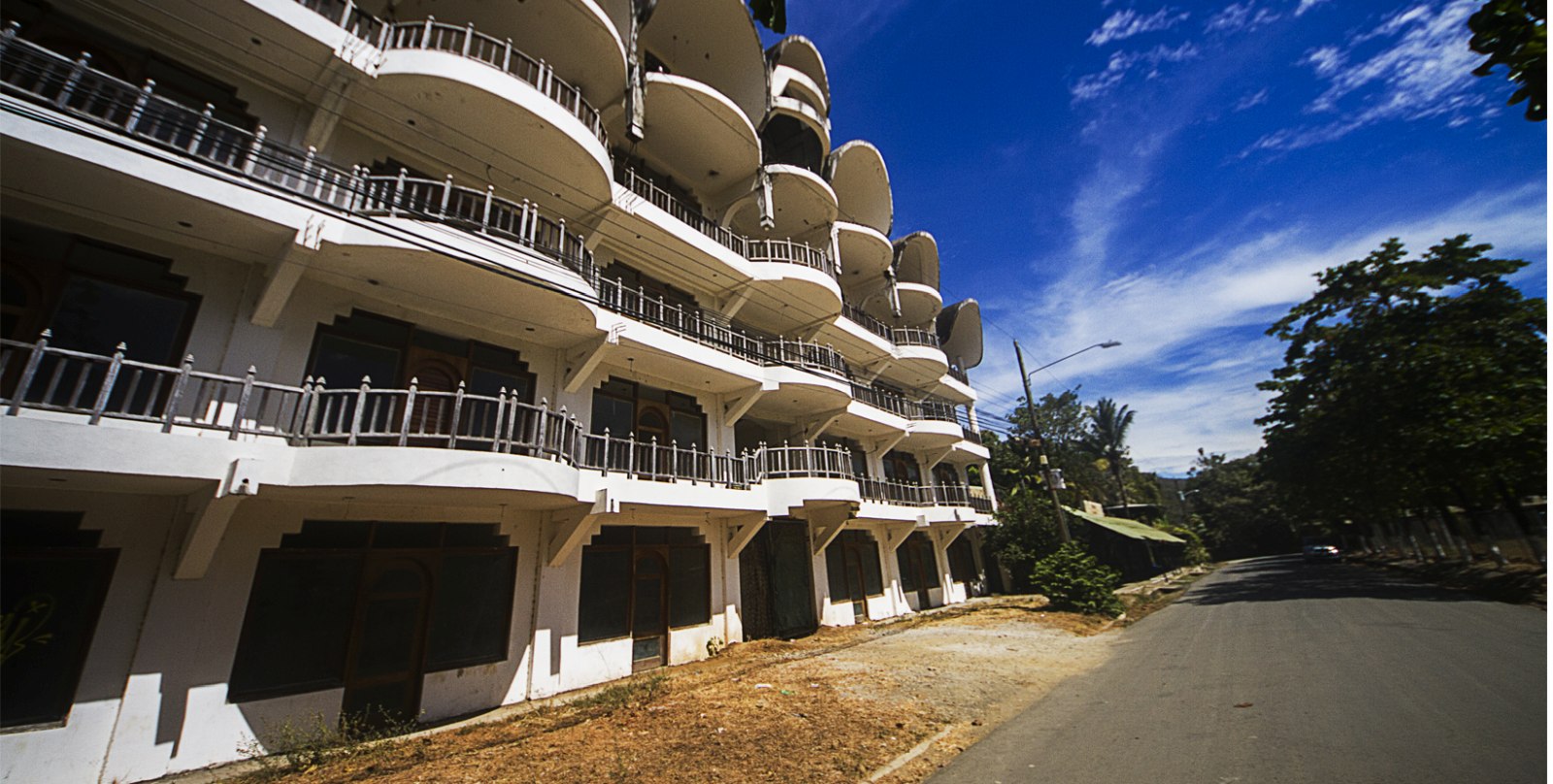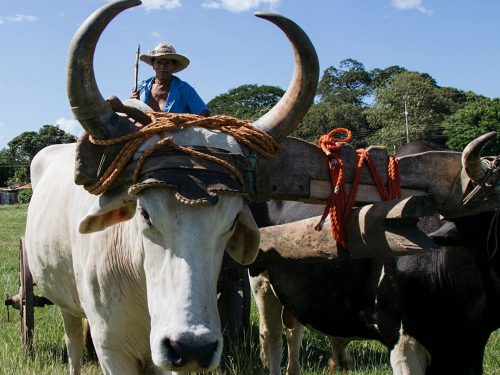
In Santa Barbara of Santa Cruz, one small organization is having a big impact in the debate surrounding genetically modified organisms (GMOs). Sol de Vida, a non-profit organization, was founded in 1989 to promote the use of solar ovens and since then has become a driving force behind the battle to keep the canton and the province free of transgenic crops.
During its first years, their focus was helping women in poor communities build their own oven through a fifteen-day course. While morning work sessions were devoted to oven construction, afternoons often included workshops on self-esteem, male chauvinism , and women’s empowerment.
Fatima Montealegre Ramirez, a Santa Barbara native who has been president of the organization for the past four years, says that the ovens were easy enough to build. Their work challenging dominant gender roles, however, “That’s the hard part.”
As the organization grew, Sol de Vida expanded their mission to include the protection of traditional, sustainable foods. “Someone asked the question, ‘But what are we putting in these ovens?’” according to Montealegre.
With this expanded mission, members of the organization began studying and discussing the issue of genetically modified seeds about ten years ago. Farmers using GMOs, which can be patented and owned by multinational companies, are often prohibited from saving seeds after harvest, either because the organism has been altered to not yield viable seeds or because doing so would violate patent rights.
The prospect of GMOs being used in Guanacaste, to Montealegre, became a question of freedom. “We have to defend our corn. Guanacaste without corn is nothing,” she affirmed.
In 2005, Sol de Vida solicited action from the municipality to support non-GMO seeds and farmers who use them. “They took the initiative and invited us to a meeting to talk about GMOs,” says Minor González Álvarez, a Santa Cruz trustee. “That’s where the idea [for the declarations] came about.” González took charge of the political process, presenting the proposal to the municipality of Santa Cruz with the help of Mariela Sánchez Guadamuz, another trustee.
The government responded positively, declaring that Santa Cruz would be free of GMOs. At the time, only five cantons throughout Costa Rica had made the same decision, while nearly three-fourths of all municipalities in the country have done so now.
The Sol de Vida Foundation continued to work for the preservation of native seed varieties. This past year, they solicited a second declaration from the Santa Cruz municipal government. The result was positive again – in June, the municipality issued a second declaration, proclaiming Santa Cruz a sanctuary of native seeds.
Rather than resting on their laurels, Sol de Vida is focused on ensuring that santacruceños are informed about the risks of GMOs and the value of native varieties. To do so, they hold four public festivals every year – typically on important days of the solar calendar such as the solstices – to reach as many people as possible.
The foundation also hosts groups of local students at their learning center, La Casa del Sol, where both boys and girls are invited to prepare their own banquet using one of the many solar ovens, dehydrators, or water heaters available on the grounds.
To visit Casa del Sol or learn more about Sol de Vida’s work, please call 2681-1015 from 9 a.m. until 4 p.m. on weekdays or email [email protected]. Their next event will be planned around the winter solstice, on December 21st, though details are still to be determined.







Comments